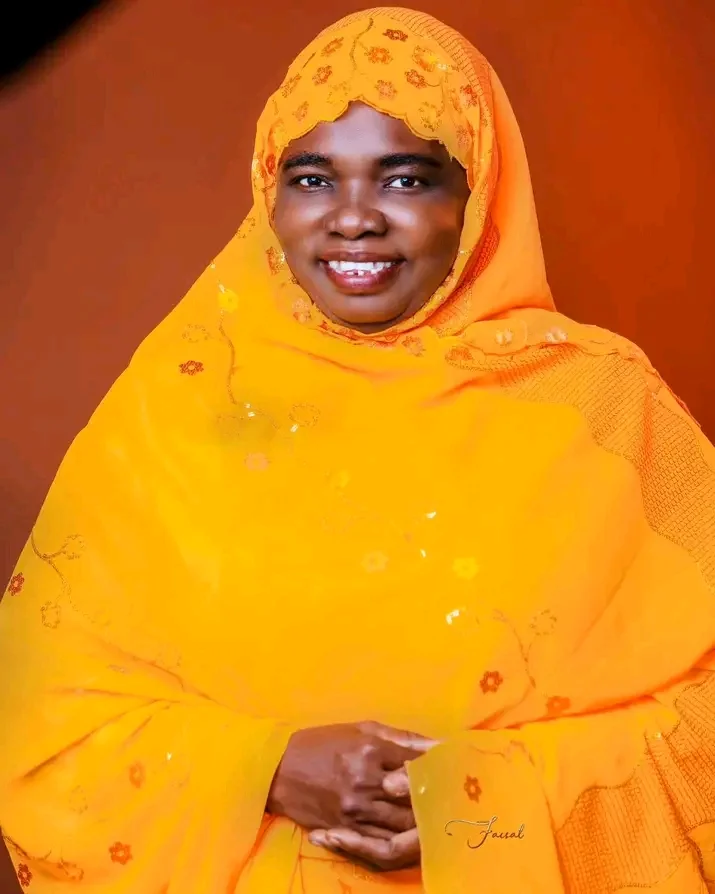Kannywood, the thriving film industry of Northern Nigeria, mourns the loss of a beloved Nigerian film star, Saratu Gidado. The news of her passing on April 9, 2024, at the age of 56, has left a deep void in the Nigerian film industry.
Tributes have poured in from colleagues, fans, and admirers across the country. Social media is flooded with messages expressing sorrow and appreciation for her contributions to Nigerian cinema and legacy as a whole.
Early beginnings
Saratu was born on January 17, 1968, in Gwale, Kano State, Nigeria, where she acquired both elementary and high school education. Arguably, she is the first married woman to join the Kannywood industry in early 2000.
From the start, her talent shone brightly as she made a debut in the film, Linzami Da Wuta, produced by Sarauniya Movies. This film marked the beginning of her rise to fame. Popularly known by the nickname “Daso,” Gidado carved a unique niche for herself, captivating audiences with her portrayal of strong, often mischievous, female characters who defied societal expectations.
Over the years, Gidado has possessed a remarkable ability to adapt to diverse roles. She reveled in playing characters who challenged the status quo and championed female empowerment. Her performances in films like Nagari, Gidauniya, Mashi, and Sansani resonated with audiences, particularly young women in northern Nigeria seeking role models who dared to be different.
Equally adept at lighter roles, Gidado’s comedic timing and infectious energy brought laughter to audiences. She was a vital part of several Kannywood romantic comedies, her performances have helped in adding a touch of realism and emotional depth to these popular films.
Beyond Kannywood
Gidado’s influence transcended the boundaries of Kannywood. Her filmography boasts over 100 films, including collaborations with Nollywood, the dominant film industry in Southern Nigeria. Some of her notable cross-regional works include Yar Mai Ganye, Cudanya, and There’s a Way. These projects not only bolstered her national appeal but also played a role in bridging the cultural divide between Nigeria’s north and south.
Gidado’s willingness to explore diverse acting opportunities and challenge herself artistically, speaks volumes about her dedication to her craft, which clearly shows that she is recognised as a Nigerian cinema icon who speaks to audiences across Nigeria’s ethnic and cultural divides.
Also, Gidado’s impact extended beyond the screens. In 2016, she was appointed as the protocol officer (Jakadiya) to the 14th Emir of Kano State, Muhammad Sanusi II, showcasing her dedication to public service.
Most importantly, Gidado was known for her philanthropic efforts. During the holy month of Ramadan, she was known to sponsor feeding programs for the less privileged, ensuring they had food for Suhoor and Iftar meals. All her life, Gidado was always willing to lend a helping hand to those in need.
Gidado served as a role model for aspiring actors and actresses in Kannywood, particularly those yearning to see greater representation of strong female characters within the film industry. Her movies not only entertained but also sparked conversations about social issues.
As she laid to rest, Gidado’s legacy will continue to inspire future generations of actors and filmmakers while being remembered as a true star of Kannywood and Nigerian cinema.
By: Yahuza Bawage
If you enjoyed reading this article, be sure to check out this other fascinating piece!
For the latest updates, Download P+us app available on Google App Store


















